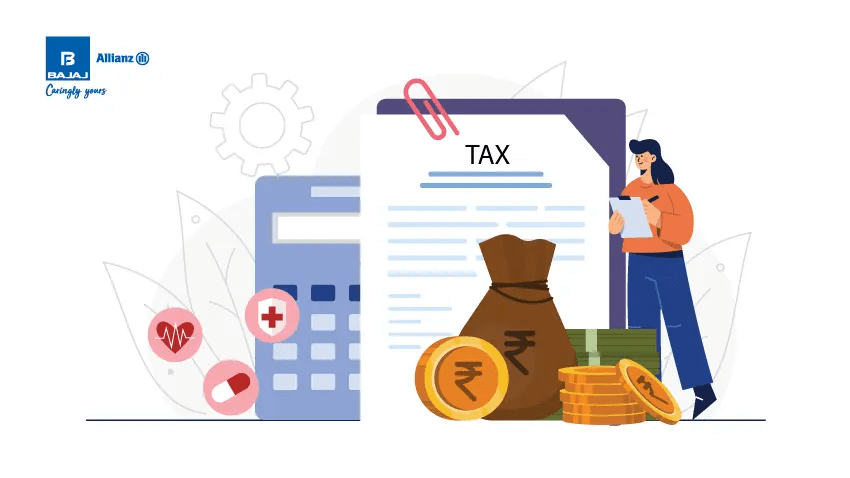Senior citizens in India are entitled to several tax benefits and exemptions that can help them save money on their taxes. For instance, Section 80D offers increased tax deductions to senior citizens on the premiums paid for health insurance policies. However, Section 80C of the Income Tax Act is the most well-known tax-saving option. Besides Section 80D and Section 80C, there are several other tax-saving options available for senior citizens as well. In this article, we will discuss some of those tax-saving options for senior citizens.
Tax-Saving Options for Senior Citizens Other Than 80C
If you are a senior citizen who is looking for suitable tax-saving options other than Section 80C of the Income Tax Act, these are some of the options you can consider:
1. Deduction on interest income (Section 80TTB)
Senior citizens can claim a deduction on interest income earned from a savings account, fixed deposits, and recurring deposits under Section 80TTB of the Income Tax Act. This deduction can be claimed up to Rs. 50,000. It is essential to note that the deduction is available only on interest income earned from a bank or post office, and not on interest earned from company deposits, bonds, or debentures.
2. Deduction on medical treatment (Section 80DDB)
Senior citizens can claim a deduction on expenses incurred towards medical treatment under
Section 80DDB of the Income Tax Act. This deduction can be claimed up to Rs. 1 lakh for the treatment of specific diseases such as cancer, neurological diseases, chronic renal failure, etc. The deduction can be claimed by senior citizens who are living individually or are a part of a HUF (Hindu Undivided Family).
3. Deduction on house rent (Section 80GG)
Senior citizens who do not receive HRA (House Rent Allowance) from their employer can claim a deduction on rent paid under Section 80GG of the Income Tax Act. This deduction can be claimed on one of the following 3 conditions, whichever is lower:
- The rent amount minus 10% of the total income
- 5000 per month
- 25% of the total income after adjustment
4. Deduction on donation (Section 80G)
Senior citizens can claim a deduction on donations made to charitable institutions under Section 80G of the
Income Tax Act. The deduction amount varies depending on the charitable institution and can be claimed up to 100% of the donation amount. If you are making cash donations, the limit for such donations to be eligible for tax deduction is Rs.2000.
5. Deduction on home loan payments (Section 24[b])
Senior citizens who have taken a home loan can claim a deduction on the interest paid on the loan under Section 24(b) of the Income Tax Act. The deduction can be claimed up to Rs. 2 lakhs if the property in question is constructed within 5 years of having taken the loan. If you have given the property on rent for residential purposes, you are not required to pay tax on the loan’s interest payment.
6. Health insurance premium (Section 80D)
Senior citizens are eligible for a deduction on the premium paid towards their
health insurance policy under
Section 80D of the Income Tax Act, with the following deduction limit:
- If you and your family members are below the age of 60 years, you can claim a deduction of Rs.25,000. If your parents are above 60, a deduction of Rs.50,000 can be claimed.
- If you and your family members are above the age of 60 years, a deduction of Rs.50,000 can be claimed. If your parents are above 60, a deduction of Rs.50,000 can be claimed.
What is Health Insurance?
If you are wondering
what is health insurance is a type of general insurance which is designed to offer financial coverage for expenses related to medical emergencies. This includes ambulance fees, room rent, doctor visit charges, nurse charges and medical tests among other expenses. You have options such as individual medical insurance, family health plans,
senior citizen health plans and critical illness insurance to select from when looking to purchase a policy. *
Conclusion
Senior citizens in India have several tax-saving options other than Section 80C, which can help them save money on their taxes. It is essential to note that these deductions are available only to senior citizens, and not to individuals who are below the age of 60. By utilizing these tax-saving options, senior citizens can not only save money on their taxes but also increase their disposable income.
It is advisable to consult with a tax professional or financial advisor to determine the best tax-saving options for your specific needs and circumstances. It is also advisable to consult an insurance agent to know more about the
benefits of health insurance if you are looking to purchase one.
*Standard T&C apply
**Tax benefits are subject to change in prevalent tax laws
Insurance is the subject matter of solicitation. For more details on benefits, exclusions, limitations, terms, and conditions, please read the sales brochure/policy wording carefully before concluding a sale.
 Service Chat:
Service Chat: 

